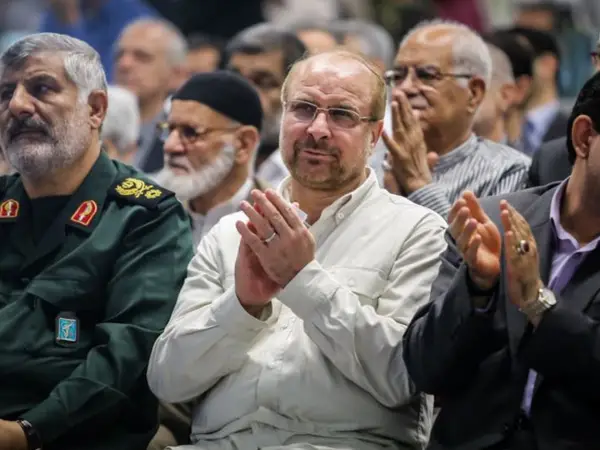The speaker of Iran’s parliament, who faces a scandal related to his family’s luxury shopping abroad, told the government that people face financial hardships.
Mohammad Bagher Ghalibaf in a meeting with government representatives on Sunday said, “Rising prices in the country have become indefensible,” and “people face hardship.”
A scandal broke on April 20 when videos and images emerged that Ghalibaf’s wife and daughter visited Turkey and allegedly bought luxury items for the baby his daughter expects. His son and chief aide tried to smooth things over by apologizing but the Speaker remained silent.
A journalist also made a more serious allegation that the family bought two luxury apartments while in Istanbul for $1.6 million.
Many politicians and ordinary Iranians have criticized Ghalibaf, some even calling for his resignation as he and other top officials constantly speak of ‘resistance economy’ and people’s resilience in the face of United States’ sanctions, but their families take foreign trips for shopping.
The scandal has also revealed a rift among ‘revolutionary’ hardliners or “principlists” as some like to call themselves. Reports in the media say that ultra-hardliners in the parliament representing the Paydari group may have even been involved in exposing the Ghalibaf family’s trip to Turkey.
Vahid Ashtari, a journalist who first revealed the scandal, is considered a “principlist” who say they campaign for justice.
But other hardliners have come to Ghalibaf’s defense, attacking his critics. One hardliner quipped that “The enemy has planned to weaken unity among government institutions,” a reference that conservatives and hardliners control both the presidency and the legislature. He added that “The revolutionary forces are more alert than to be deceived by these kinds of conspiracies.”
Mohammad Aghamiri, another hardliner, tried to defend Ghalibaf by saying that his family went to Turkey “with four bags and returned with five,” while Ashtari insists he has evidence the family returned with more than 20 pieces of luggage.
Aghamiri went on to say that there is nothing wrong with a young enthusiastic couple travelling to Turkey “and buying a few things that were on sale.”
However, critics ask how Ghalibaf’s family can afford a foreign trip and luxury shopping when the Iranian currency has substantially dropped, and many people do not have enough food to eat.
Ghalibaf has been involved in numerous financial corruption cases over the years, especially during his tenure as Tehran mayor from 2005-2017. As a former Revolutionary Guard general, in many of his corruption cases there is a thread connecting to other high ranking IRGC figures, including Qasem Soleimani, the Qods Force commander killed in a US drone strike in Baghdad in 2020.
Fars news agency affiliated with the IRGC attacked Vahid Ashtari and others who have exposed and pursued Ghalibaf’s scandal. “Psychologists believe that an identity crisis and an urge to be noticed…” leads to “deviations”, it said.
The ultra-hardliner Kayhan newspaper financed by Supreme Leader Ali Khamenei said that the scandal is the creation of “anti-revolutionaries abroad”, reformists and “deviant forces”, an indirect reference to followers of former president Mahmoud Ahmadinejad. The Paydari group in parliament is made up of mostly former Ahmadinejad officials, although the former president has not spoken about the scandal.
Some lawmakers have also insisted that the revelations about Ghalibaf are a “political and security project” aimed at damaging his reputation and political standing.
Ashtari has responded on Twitter, telling Ghalibaf’s supporters to end duplicity in their lives “and everything will be solved.”
